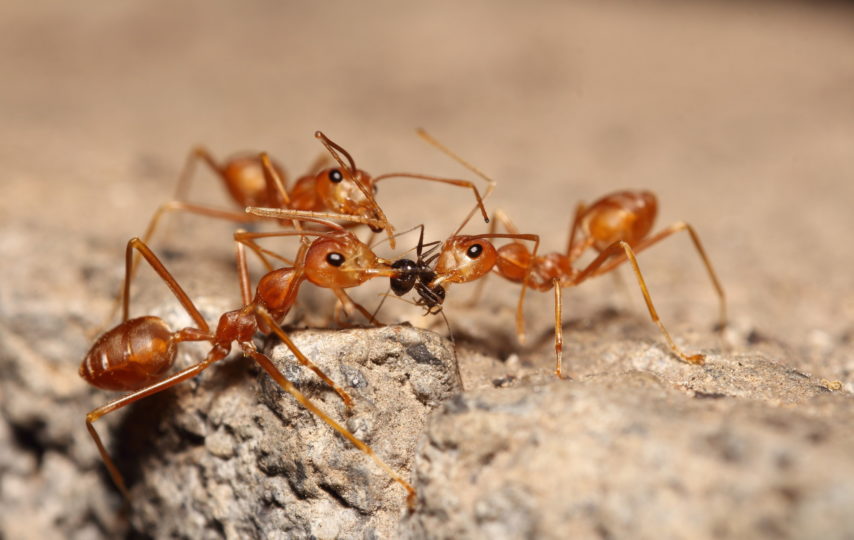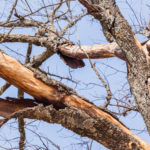Before you book that trip to Florida, you might want to learn about the Sunshine State’s craziest (and most common) pests. Mice, fruit flies, and cockroaches might be common pests for most of the US.
Florida’s a little different. You might end up being accosted by a seagull, but you’re unlikely to see a pigeon. The average pest in Florida is a bit deadlier and more dangerous than your common mouse or termite colony.
Odd Florida Insects
If you’ve never heard of the Milkweed Assassin Bug (Zelus longipes), then you’ve never lived in Florida. Or, at least, you’ve never taken notice of the one-inch-long insect. That’s probably for the best.
This orange-and-black bug has an oddly banana-shaped body that gets wider toward the abdomen. It also has a long straw-like mouth that doubles as a weapon.
When the Milkweed Assassin Bug gets hungry, it punctures smaller insects’ soft exoskeleton with its mouth. This appendage exudes a substance that paralyzes the prey.
From that point, the Milkweed Assasin Bug uses its mouth to suck out the innards. If that’s not disturbing enough, this insect is considered one of the friendlier Florida bugs.
Should you happen to encounter an American Oil Beetle (Meloe americanus), it might be best to walk away quickly. If the beetle sees you and decides that you’re a threat, you could be in for a painful surprise.
This pesky pest can shoot a harsh chemical from its various joints. This nasty stuff is so strong that it can cause your skin to blister. Of course, even these beetles have nothing on Lyme-disease-carrying wood ticks.
Unique Animals in Florida
While it may surprise some first-time visitors, Florida is full of wild, native reptile life. Gopher tortoises, green anole lizards, and massive American alligators are just a few of the most common cold-blooded Florida residents.
However, green iguanas (Iguana iguana) aren’t native to Florida. They’re an invasive species that is currently taking over the entire state. While they were once a Miami-specific pest, they’re now widespread.
But don’t let these facts about iguanas deter you from visiting the Sunshine State. After all, you won’t want to miss the opportunity to see some of the weirdest Florida creatures. And we’re not talking about the Florida Man!
Just Plain Weird Creatures in Florida
Do you know that invasive iguana species have become a part of the Florida diet? Green iguanas and black spiny-tailed iguanas are harmful to native flora and fauna. As such, some native folks have taken to eating them.
In South Florida, you can find Giant Pythons wrestling with 16-foot alligators. You may also see Caribbean crazy ants with red bodies and dark black abdomens. If you try to squash one, it might run in circles.
Ready to dive beneath the gulf’s warm waves? Prepare to encounter cannibalistic Lionfish eating one another out of pure desperation. Truly, Florida is the Australia of the United States.
How Do Floridians Handle These Pests?
Floridians have developed several ways to combat the bizarre and unending tide of native pests. While pesticides are a relatively popular option, many homeowners and business owners incorporate natural solutions as well.
Plants that repel pests are prevalent. It’s not uncommon to find citronella and mint growing outside of shops or homes. Native animals that eat bothersome pests are also welcome.
Aggressive mosquito hordes might dwindle after meeting bats, frogs, toads, or dragonflies. Notably, Florida is home to Toxorhynchites rutilus, also called the predatory mosquito. This insect preys on other mosquitoes.
A Pest in Florida Is Bound To Be Strange
Florida is home to many things, including some of the country’s most jaw-dropping pests. If you’re planning to visit or are already a Florida resident, it’s crucial to familiarize yourself with these creatures.
A pest in Florida could be far deadlier than a pest in Michigan or Montana. After all, Florida is home to wood ticks, black widow spiders, brown recluse spiders, and beetles that can give you blisters!













